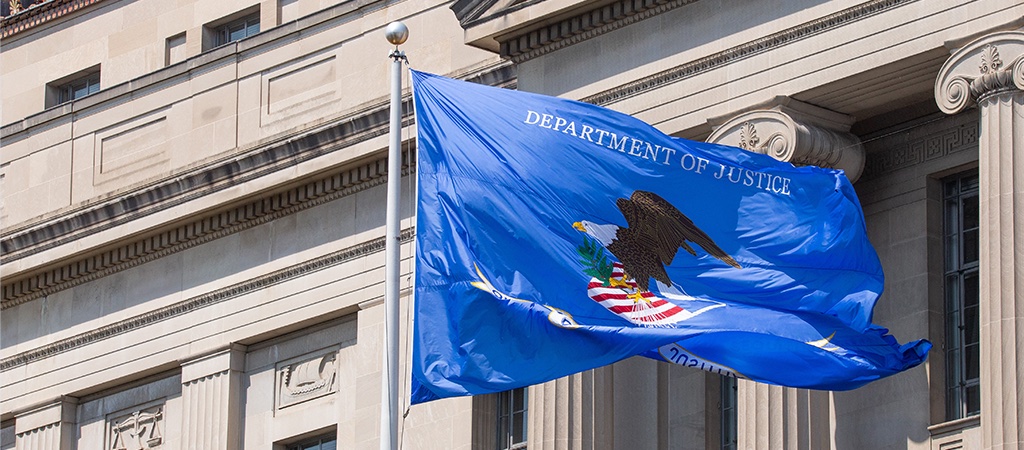What are the long-term financial impacts of rising healthcare costs in America?
PRAY FIRST for God’s guidance as we navigate the complex healthcare issues affecting different generations as well as for those burdened by healthcare debt—that they may find relief and support.
Bear one another’s burdens, and so fulfill the law of Christ. – Galatians 6:2
In an earlier prayer article, we explored the escalating healthcare costs in America. READ in Healthcare Affordability in America (prayfirst.org). Now, we delve into how these rising expenses are contributing to increased debt for many in our country.
Despite most of the people in the United States having some type of health insurance, medical related debt continues to increase. In early 2024, non-profit Peterson-KFF Health System Tracker reported “that 20 million people (nearly 1 in 12 adults) owe medical debt.” High premiums, deductibles, and out-of-pocket costs, all while wage growth has stagnated, have put many Americans in a tough position when considering their healthcare options.
Healthcare Debt Across Generations
The financial burden of healthcare debt has long-lasting implications for younger generations. With rising costs, many Millennials are forced to take on debt to pay for medical bills, leading to delayed life milestones such as homeownership and starting families. Healthcare debt can also affect credit scores—making it harder for individuals to secure loans or even qualify for affordable housing. This, in turn, creates a cycle of financial instability that impacts not only the individual but the economy as well.
The healthcare needs of senior citizens, Gen X, Xennials, Millennials vary widely. While senior citizens are more likely to face chronic health conditions requiring regular treatment, younger generations often require coverage for preventive care, mental health services, and reproductive healthcare. Senior citizens primarily rely on Medicare, but other generations must navigate the complexities of private insurance, with coverage that can fall short of their needs.
U.S. Healthcare Policy
Current U.S. healthcare policies are often criticized for failing to adequately address the needs of different generations. While Medicare provides coverage for seniors, there is a lack of comprehensive options for younger generations, particularly those who are self-employed or working in industries that do not offer standard employer-sponsored health insurance. Public options like Medicaid and the Affordable Care Act (ACA) exchanges help some individuals, but many find these options too expensive or limited in coverage. Meanwhile, private insurance can be accompanied by high premiums, leaving many Americans under-insured.
Private insurance plays a significant role in the U.S. healthcare system, and for many Americans, it is the only option. However, high premiums, deductibles, and out-of-pocket costs make it difficult for many to access the care they need. Public options like Medicare and Medicaid offer more affordable healthcare for certain groups, but these programs have their limitations. Medicaid is only available to low-income individuals, and Medicare does not cover all healthcare expenses—leaving many seniors with additional out-of-pocket costs. A potential solution could be expanding public options or implementing a more affordable private option that can better address the needs of individuals in different stages of life or care needs.
Future of the Industry
Emerging technologies like telemedicine and artificial intelligence (AI) have the potential to reduce healthcare costs and improve access, particularly in underserved communities. Telemedicine allows patients to consult with healthcare providers remotely, reducing the need for in-person visits and lowering the cost of care. AI can help in diagnosing diseases early, leading to more cost-effective treatments. However, the implementation of these technologies raises ethical and financial questions. How do we ensure fair access to these and other innovations, and how do we prevent these advancements from simply creating shortcuts that ends up providing less care?
Pray the Vote 2024 – Candidate and Party Positions
As the election nears, the presidential candidates have expressed their views on how to address the concerns in the United States regarding the rising cost of healthcare. Here are their platforms.
SPECIAL NOTE: The full platform for each party can be found on their respective websites. The following excerpts are unedited. Reader discretion is encouraged as these are political statements and have not been checked for accuracy. The Presidential Prayer Team is non-partisan and does not support or endorse any of the following statements.
2024 Democratic Party Platform:
HEALTH CARE
Health care should be a right in America, not a privilege. Every American deserves the peace of mind that quality, affordable coverage brings. That’s why Democrats fought so hard to pass the Affordable Care Act, providing 45 million Americans with insurance, guaranteeing protections for 100 million people with preexisting conditions, and protecting nearly 180 million people from lifetime coverage limits. Yet even now, 14 years after we passed that landmark law, Trump and Republicans are still threatening to repeal it. Democrats will never let that happen. We’ll never quit fighting to protect and expand the Affordable Care Act, making quality care more accessible and affordable, as the Biden-Harris Administration has done.
Today, more Americans have health insurance than ever in history. Coverage is up and costs are down. A record 21 million people signed up through the Affordable Care Act this year, helping to slash the uninsured rate from 16 percent in 2010 to under 8 percent now. Democrats have expanded the health insurance premium tax credit twice, saving millions of Americans an average of $800 a year on coverage; and helping an additional 1.7 million Latinos, 830,000 Black Americans, and 110,000 Asian Americans buy more affordable insurance. Republicans want to let those credits expire, increasing premiums. Democrats will fight to make them permanent.
As Democrats, we support Medicaid expansion, encouraging states to provide health coverage to low-income Americans on the federal government’s tab. The Administration has helped over a million people in four states to enroll; and we’ll keep pushing Congress to further expand Medicaid-like coverage to the 2.8 million uninsured low-income adults who live in states where Republicans still refuse the help. Democrats are working to protect kids’ health coverage as well, by removing financial barriers for the Children’s Health Insurance Program; and making it easier for families to keep kids on Medicaid. President Biden’s plan will let families go three years without having to resubmit Medicaid paperwork for children younger than six, reducing burdensome red tape.
Democrats believe that quality, affordable health care should be available in every corner of America. The Administration has invested in new mobile health clinics; and in keeping community and rural health centers, lifelines for tens of millions of people, open, well-staffed, and well-equipped. We want to double those investments now. And the Administration is cracking down on federally funded health care providers that turn away or otherwise discriminate against people on the basis of race, sex, age, national origin, or disability.
Democrats will keep working to grow the health care workforce, so workplace and other provider shortages no longer create barriers to quality care and inflate health care costs. We are investing in programs that train primary care practitioners, registered nurses, mental health specialists, and others to work across our health care system, including in rural and low-income areas.
The Administration is also cracking down on surprise medical billing and junk health insurance, so patients are no longer ambushed by unexpected bills or scammed into buying low-quality health coverage. Democrats will expand “no-surprise billing” to include costly ground ambulances; and we’ll keep using antitrust laws to stop hospital, insurance, and Big Pharma mergers that undermine competition and increase health care prices for consumers.
PRESCRIPTION DRUGS
Big Pharma has ripped off Americans for years, charging two and three times more here than in other countries for the exact same medications. Nearly three in ten Americans can’t afford their prescriptions as a result. Instead of working to change that, Trump gave drugmakers massive tax breaks that only incentivized them to shift production overseas.
President Biden, Vice President Harris, and Democrats took on Big Pharma and won. Democrats capped the price of insulin at $35 a month, down from as much as $400, for nearly 4 million seniors on Medicare. And President Biden persuaded the nation’s top three insulin makers to lower their prices for everyone. Now, we’ll fight to expand that $35 cap to cover everyone, saving millions of Americans with diabetes nearly $1,000 a year. Starting next year, the Inflation Reduction Act also caps total out-of-pocket drug costs at $2,000 a year for millions of seniors and others on Medicare. Democrats will fight until that cap covers every single American.
For the first time, Medicare now also has the ability to negotiate lower drug prices, as private insurers and the VA have done for decades. It started doing so this year, beginning with 10 commonly used medications for conditions such as diabetes and heart failure. Democrats will push to add at least 50 drugs a year to that list, lowering prices for 500 drugs this decade. Medicare Part-D is also working to cap cost-sharing for life-saving generics at $2 a dose; Democrats will make this mandatory for all Medicare beneficiaries.
The Administration is also leading the charge against Big Pharma price gouging, by requiring drugmakers that raise prices faster than inflation to pay the difference back to Medicare, which will then pass savings on to consumers. This will protect over 750,000 seniors, who could save as much as $4,500 per over-priced dose. Democrats will keep fighting to expand these rebates, applying them when drugmakers overcharge not just Medicare, but private insurers as well. We’re also cracking down on improper drug patent listings, which some drugmakers use to shut out competition. Once companies drop their improper patent listings, other companies will be free to make cheaper alternatives. The FTC’s work in this area has already pushed three of the biggest makers of inhalers to lower prices to $35 a month, saving people with asthma hundreds of dollars a year. The Administration also enacted rules to finally make hearing aids available over-the-counter, saving millions of Americans up to $3,000 a pair. And Democrats will continue the Administration’s work to require that any drugs developed with taxpayer dollars be available to taxpayers, including at reasonable prices. Democrats will keep working to lower drug prices by requiring more transparency from the “pharmacy benefit manager” middlemen who generally decide which drugs are covered by insurance and bought by doctors, and how much they cost.
All these actions will benefit family budgets. And they’ll boost the federal budget, too – reducing the deficit by $160 billion over the next ten years, as Medicare no longer has to pay Big Pharma exorbitant prices.
Every Democrat in Congress voted for the Inflation Reduction Act, the historic law behind these savings. Every single Republican voted against it – against $35 insulin for seniors, against Medicare negotiating lower prices, against saving millions of seniors’ money on life-saving drugs. Now, Trump and his MAGA allies are promising to repeal it entirely, and to funnel our savings back into Big Pharma’s pockets. We won’t let that happen.
2024 GOP Platform:
Republicans offer a plan to make the American Dream affordable again. We commit to reducing Housing, Education, and Healthcare costs, while lowering everyday expenses, and increasing opportunities.
Affordable Healthcare
Healthcare and prescription drug costs are out of control. Republicans will increase Transparency, promote Choice and Competition, and expand access to new Affordable Healthcare and prescription drug options. We will protect Medicare, and ensure Seniors receive the care they need without being burdened by excessive costs.
…
President Trump has made absolutely clear that he will not cut one penny from Medicare or Social Security. American Citizens work hard their whole lives, contributing to Social Security and Medicare. These programs are promises to our Seniors, ensuring they can live their golden years with dignity. Republicans will protect these vital programs and ensure Economic Stability. We will work with our Great Seniors, in order to allow them to be active and healthy. We commit to safeguarding the future for our Seniors and all American families.
Protect Social Security
Social Security is a lifeline for millions of Retirees, yet corrupt politicians have robbed Social Security to fund their pet projects. Republicans will restore Economic Stability to ensure the long-term sustainability of Social Security.
Strengthen Medicare
Republicans will protect Medicare’s finances from being financially crushed by the Democrat plan to add tens of millions of new illegal immigrants to the rolls of Medicare. We vow to strengthen Medicare for future generations.
Support Active and Healthy Living
Republicans will support increased focus on Chronic Disease prevention and management, Long-Term Care, and Benefit flexibility. We will expand access to Primary Care and support Policies that help Seniors remain in their homes and maintain Financial Security.
Protect Care at Home for the Elderly
Republicans will shift resources back to at-home Senior Care, overturn disincentives that lead to Care Worker shortages, and support unpaid Family Caregivers through Tax Credits and reduced red tape.
Why It Matters and How We Can Respond
The high cost of healthcare, coupled with the lack of transparency in billing and insurance, creates barriers that prevent many Americans from accessing necessary care. This issue is not confined to one demographic and impacts every age group, making healthcare reform an urgent priority. We are called to care about one another, and this would include healthcare as it directly affects the well-being and dignity of our neighbors. Jesus consistently demonstrated compassion for the sick, healing them without concern for their status or wealth. Healthcare access is not merely a political issue but a moral one, rooted in our duty to love and care for others. Understanding the financial burdens that medical expenses place on individuals and families teaches us to be more compassionate and actively seek ways to support and advocate for a more just system.
As Christians, we can also organize community health events or offer resources for preventive care. Also, we can participate in local and national discussions about healthcare reform to ensure that our voices advocate for justice and compassion. We should strive to exemplify kindness and advocacy in our everyday lives. This means standing for fairness in healthcare discussions, listening carefully to others’ struggles, and offering practical help where we can. Our sphere of influence extends beyond our immediate circles and can affect broader communities if we lead with humility, kindness, and a genuine desire to see positive change.
HOW THEN SHOULD WE PRAY:
— Pray for those burdened by healthcare debt and financial challenges and that they be granted God’s wisdom in managing their finances—finding ways to overcome these economic struggles. For the Lord gives wisdom; from his mouth come knowledge and understanding. – Proverbs 2:6
— Pray for equity and fairness in healthcare access across all generations and for policies and systems to prioritize the needs of all age groups—young and old alike—ensuring that no one is left behind. Give justice to the weak and the fatherless; maintain the right of the afflicted and the destitute. Psalm 82:3
CONSIDER THESE ITEMS FOR PRAYER:
- Pray for all of those burdened by the financial weight of healthcare and that they may find resources and support when facing medical challenges.
- Pray for wisdom for those in positions of power who create and enact healthcare policies and that they would be guided by justice, compassion, and fairness as they seek to address the needs of every generation.
- Pray for peace and understanding amid healthcare debates and that we can engage others on this issue with compassion, kindness, and a willingness to listen.
- Pray for God to be at work in the candidates as they seek to find ways address the concerns of the nation’s healthcare system.
Sources: Organization for Economic Cooperation and Development, U.S. Department of Health and Human Services, The Commonwealth Fund, Centers for Medicare and Medicaid Services, Health System Tracker, Democrats.org, RNCPlatform.DonaldJTrump.com









